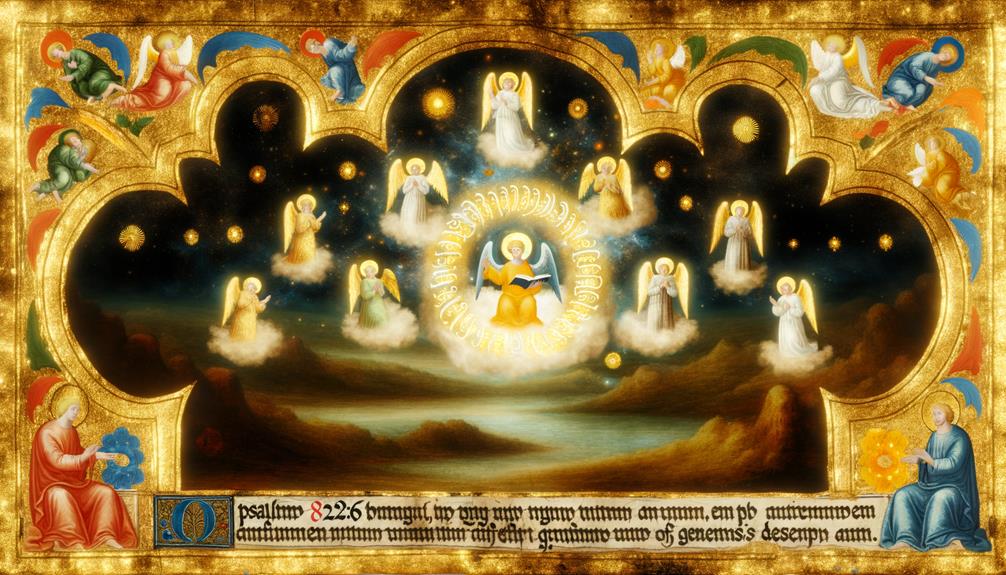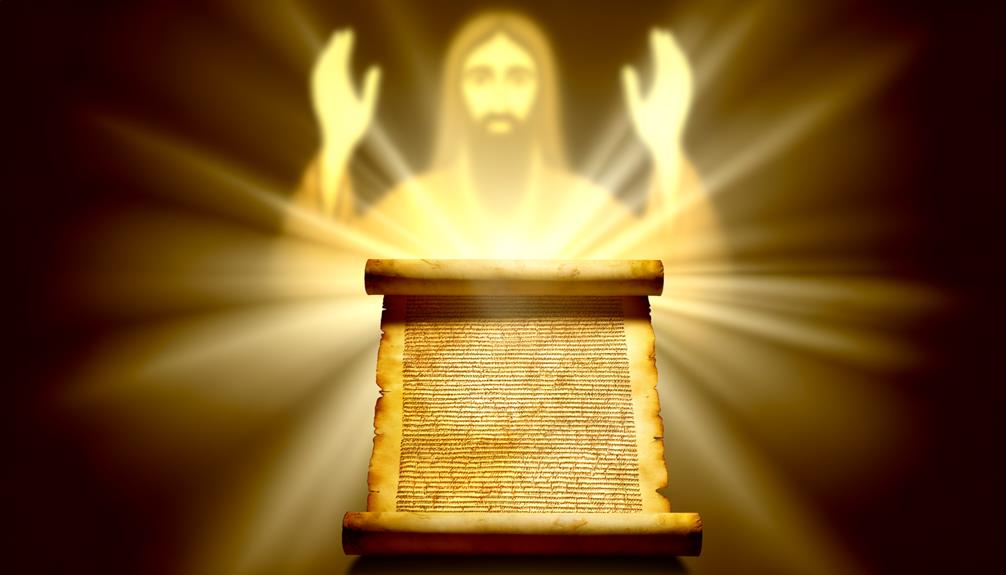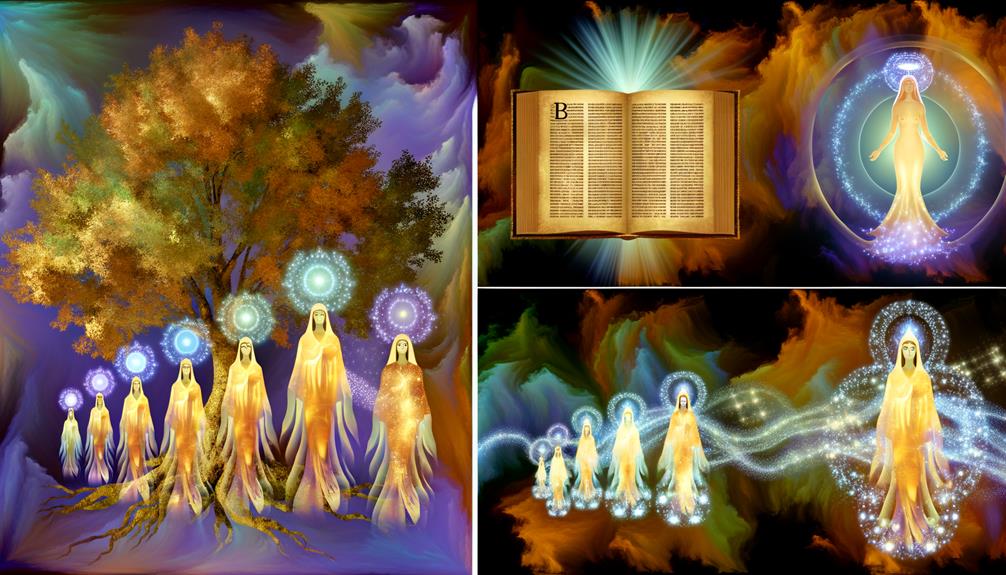You Are Gods Bible Verse Meaning: Divine Authority
The phrase ‘You are gods‘ from Psalm 82:6, echoed by Jesus in John 10:34, has profound implications within biblical literature. In Psalm 82, it addresses Israelite judges who failed to uphold justice, indicating their appointed divine role (Brown, 2010).
Jesus’ reference challenges conventional views of blasphemy and asserts His divine sonship (Ware, 2002). This verse explores the theological concept of humanity’s potential participation in divine nature (Wright, 1996) and underscores an ethical call to justice and integrity (Smith, 2018).
These interpretations deepen the understanding of divine-human dynamics throughout biblical and theological discourse.

“You Are Gods” Bible Verse Meaning: Understanding Psalm 82:6 and John 10:34
| Aspect | Meaning |
|---|---|
| Bible Verses | Psalm 82:6 – “I have said, Ye are gods; and all of you are children of the most High.” John 10:34 – Jesus answered, “Is it not written in your law, ‘I said, you are gods’?” |
| Context of Psalm 82:6 | In Psalm 82, God is addressing unjust rulers or judges, calling them “gods” to highlight their divine responsibility as leaders under God’s authority. |
| Meaning of “Gods” | The term “gods” here is used metaphorically to refer to human leaders who were given authority by God to administer justice and lead the people. |
| Jesus’ Use in John 10:34 | Jesus cites this verse when the Pharisees accuse Him of blasphemy for claiming to be the Son of God, showing that Scripture refers to humans as “gods” in a lesser sense. |
| Divine Responsibility | “You are gods” emphasizes that those given authority (such as judges or leaders) are responsible to carry out God’s will and justice on Earth. |
| Spiritual Significance | The phrase highlights the expectation that human rulers should act with integrity and righteousness, reflecting God’s character in their actions. |
| Jesus’ Defense | By referring to this scripture, Jesus shows that if human leaders can be called “gods” due to their authority, it is not blasphemy for Him, the Son of God, to claim divine status. |
| Key Bible Verses | Psalm 82:6 (God addressing unjust leaders); John 10:34 (Jesus referring to this scripture to defend His divinity). |
Biblical Context of Psalm 82:6

Psalm 82:6, which states, ‘I said, ‘You are gods; you are all sons of the Most High,” must be examined within its broader biblical context to fully grasp its theological and exegetical implications.
This verse appears within a psalm where God presides over a divine council (Psalm 82:1). Here, ‘gods’ (Hebrew: elohim) likely refers to human judges or leaders who wield significant authority but fail to uphold justice (Psalm 82:2-4).
The term ‘sons of the Most High’ suggests their appointed divine role, yet the subsequent verses condemn their corruption and mortality (Psalm 82:7).
Understanding Psalm 82:6 therefore requires recognizing the admonition against leaders’ failures and the ultimate sovereignty of God (Clifford, 2001; Tate, 1990).
Jesus’ Reference in John 10:34

In the Gospel of John, Jesus strategically cites Psalm 82:6 in John 10:34 to defend His divine sonship against accusations of blasphemy, thereby invoking a critical theological precedent.
By referencing this Psalm, Jesus points to a scriptural instance where human judges are metaphorically called ‘gods’ (elohim), consequently challenging His accusers’ understanding of blasphemy.
This citation underscores His argument that if scripture can use such terminology for humans, then His claim of being the Son of God should not be deemed blasphemous.
Jesus’ adept use of this Psalm not only fortifies His position but also compels His audience to reconsider their interpretative framework (John 10:35-36).
Hence, this reference serves as a pivotal moment in the Johannine narrative.
Theological Interpretations

Jesus’ reference to Psalm 82:6 in John 10:34 not only challenges the conventional understanding of blasphemy but also opens the door to various theological interpretations regarding the nature of divinity and sonship.
Some scholars argue that Jesus’ citation underscores the potential for humans to partake in divine qualities, thereby reinforcing the concept of theosis or deification (Ware, 2002).
Others suggest it emphasizes the unique sonship of Jesus while recognizing a functional divine status in humanity (Wright, 1996).
In addition, the reference may serve to recontextualize Old Testament notions of justice and divine authority within a New Testament framework (Hurtado, 2003).
These interpretations collectively contribute to a deeper understanding of the complex relationship between humanity and divinity in Christian theology.
Historical Perspectives

Examining the historical context of Psalm 82:6 reveals its profound impact on early Jewish and Christian thought regarding divine authority and human roles within the cosmic order (Smith, 2008).
In ancient Judaic traditions, this verse was interpreted as addressing Israelite judges, emphasizing their responsibility to enact God’s justice (Brown, 2010). The term ‘gods’ (elohim) suggested their elevated status in executing divine decrees.
Early Christians, particularly influenced by the Johannine community, reinterpreted Psalm 82:6 to emphasize believers’ participation in divine nature through Christ (Hurtado, 2003). This reinterpretation underscored the transformative potential of faith, aligning human actions with divine will.
Consequently, the historical perspectives on this verse reflect evolving understandings of authority and divine-human interaction. The interpretation of this verse has evolved over time, with some seeing it as a call to submit to earthly authorities, while others view it as a reminder of the ultimate authority of God. Additionally, the concept of the “kingdom of God meaning” has been a topic of much debate and speculation among theologians and scholars, further adding to the diverse interpretations of this verse. Overall, the historical perspectives on this verse show how understanding and interpreting authority and the kingdom of God have evolved over time within the Christian tradition.
Modern Implications

Building upon these historical perspectives, modern interpretations of Psalm 82:6 explore its implications for contemporary theological and ethical discourses, emphasizing the verse’s relevance to current understandings of justice and human dignity (Johnson, 2015).
Scholars argue that recognizing the divine aspect within humans necessitates a commitment to moral integrity and social justice. This interpretation encourages:
- Elevating human rights and equality, reflecting the divine image in all individuals (Smith, 2018).
- Promoting ethical leadership, inspired by the God-like responsibilities attributed to humanity (Brown, 2020).
Thus, Psalm 82:6 serves as a theological foundation for addressing modern issues related to human value and ethical conduct.
Conclusion
Ironically, the declaration ‘you are gods’ from Psalm 82:6 and its reiteration in John 10:34, which some might expect to elevate humanity to divine status, instead underscores human fallibility and the necessity of divine justice.
Theological interpretations and historical perspectives converge to reveal a sobering truth: this passage serves as a critique of human leaders who fail their divine mandate.
Modern implications further emphasize the enduring relevance of accountability and moral integrity in positions of authority.
References:
- Holy Bible, Psalm 82:6






